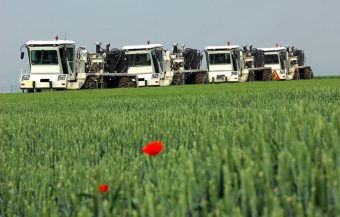
The focus of the last United Nations Summit on Sustainable Development Goals, which took place in mid-September, was precisely on fulfilling these goals. Officials warn that the situation is slowly but surely becoming alarming regarding the deadlines defined by the 2030 Agenda. This Sustainable Development Strategy was adopted at the 2015 Summit and incorporates universal guidelines formulated in 17 sustainable development goals, focusing on economic growth, social inclusion and environmental protection. According to available information, so far, only 15 per cent of the defined goals have been fulfilled at the global level, and the worrying fact is that this inadequate result has been achieved halfway to the set deadline by which all sustainable development goals are expected to be fully accomplished.
Sustainable development on the domestic business scene
To contribute to accomplishing the UN goals in the countries in which they operate, socially responsible companies shape their corporate policies and business strategies based on sustainable development principles. In some countries, this is also a legal obligation. In Serbia, this area is not regulated by law, but many companies have invested a lot of effort into accomplishing sustainable development goals. NIS is one of them. The company’s Sustainable Development Report recognizes 12 of the 17 UN goals, and through its activities and projects, NIS has been working toward accomplishing these goals. One of the goals that the company especially focuses on is promoting safe work, a healthy and safe working environment and environmental protection.
NIS underlines that promoting inclusive and sustainable economic growth is impossible without creating conditions that facilitate a safe and healthy work environment, primarily through improving internal tools to ensure fewer injuries at work and greater employee safety. The company adds that they set the most ambitious goal related to work health and safety: zero work injuries and occupational diseases and no negative impact on the working and living environment. NIS employees and all contractors, partners, and visitors to NIS locations must comply with prescribed security procedures. At the same time, the company is always willing and ready to implement the best global practices in this area with its partners.
IN FOCUS:
- EAGER BEAVERS IN THE SERVICE OF PROTECTING THE PLANET
- GREEN ENERGY AND THE PAST AND FUTURE OF EPS
- FUNDAMENTAL BUSINESS STRATEGIES TO A FASTER SUSTAINABLE DEVELOPMENT
Golden HSE (Health, Safety, Environment) rules

NIS implements six golden HSE rules, which must be followed by all employees and other persons working or staying at NIS locations to increase work safety. Also, a HSE training system was formed which helps employees to acquire risk management knowledge and skills at their workplaces, while HSE training is aligned with business needs. In NIS, among other things, a modern electronic learning method was developed to be used in HSE training, which covers the HSE topics in an interesting and interactive way. The results of this training were recognized by the Directorate for Work Health and Safety of the Ministry of Labor, Employment, Veteran and Social Affairs, which, in the last two years, ranked NIS first in the competition for national work health and safety awards in the 28th April Charter category.
Environmental projects in focus
To ensure sustainable forms of consumption, NIS operations are based on a responsible attitude towards resources and environmental protection. Since 2009, the company has invested more than 900 million euros in environmental projects and projects that significantly boost environmental protection in the Republic of Serbia. One of the results is the reduction of emissions of polluting substances into the air by as much as 90 per cent over the last 10 years. NIS has also incorporated their approach towards environmental protection into the company’s mission and vision and adopted values and HSE policy, which means that the company views investments and efforts in this segment as a priority at all levels and simultaneously as a daily practice in business processes. NIS also continued to invest in the green agenda and renewable energy sources by installing 15 solar panels at the company’s petrol stations, which are estimated to reduce annual carbon dioxide emissions by 600 tons.
Daily activities related to sustainable development in all business segments contribute to the long-term sustainable development of NIS, which says that only by working in this direction can they ensure the company’s sustainable development but give a significant contribution to the accomplishment of the UN goals and therefore secure a better future for everyone.
NIS
Read the story in the new issue of the Energy portal Magazine RESPONSIBLE BUSINESS

